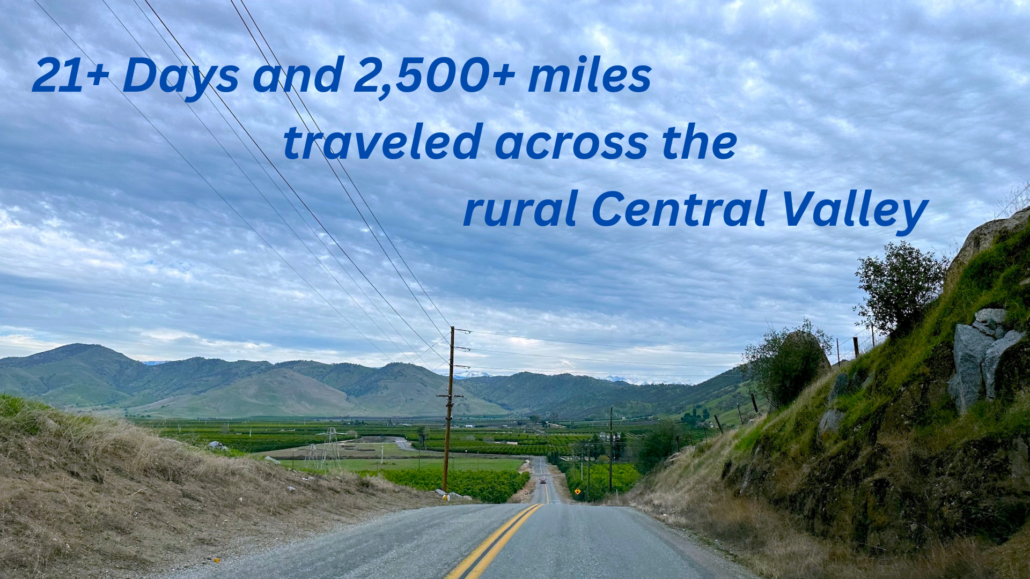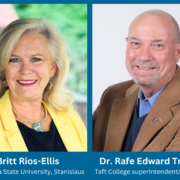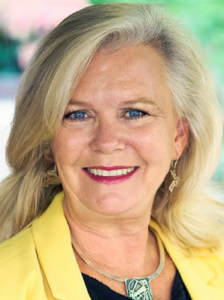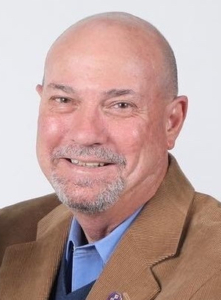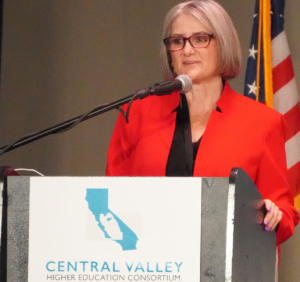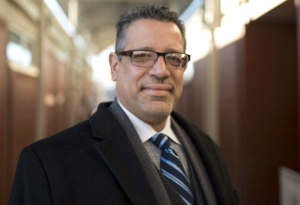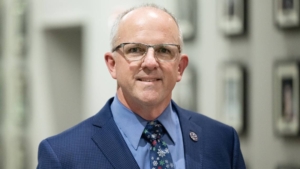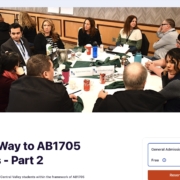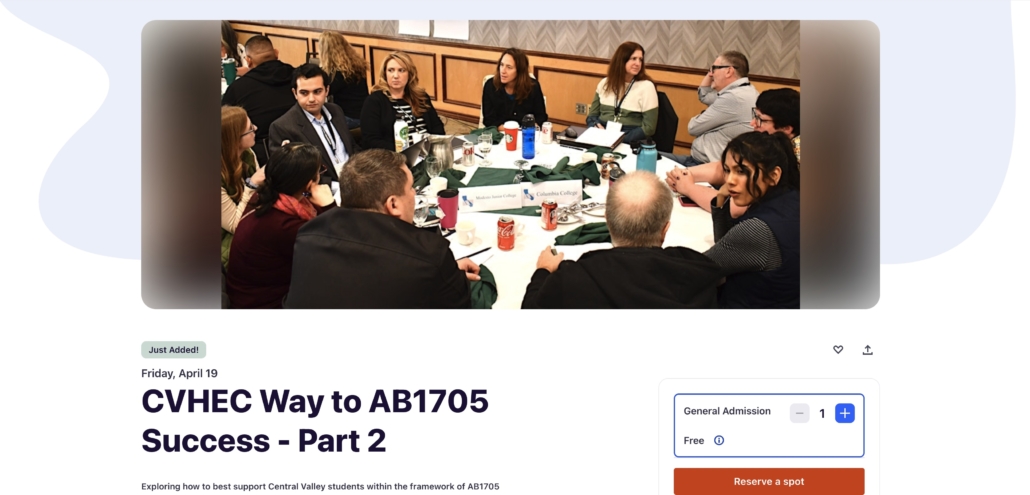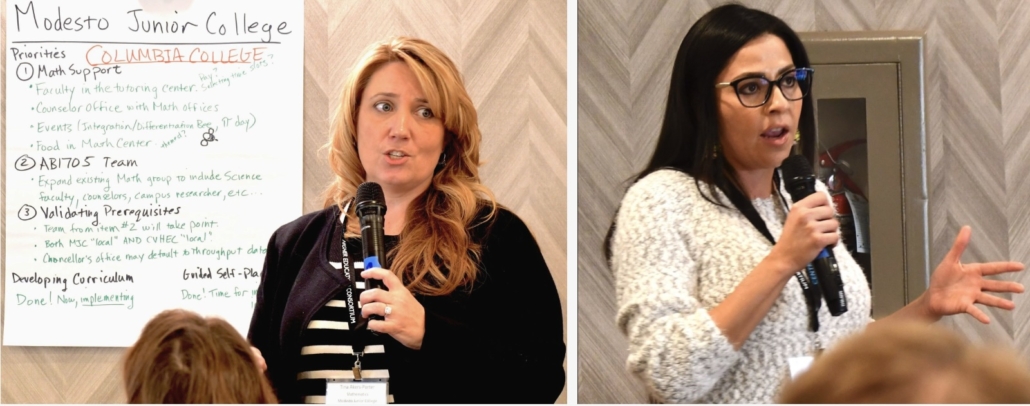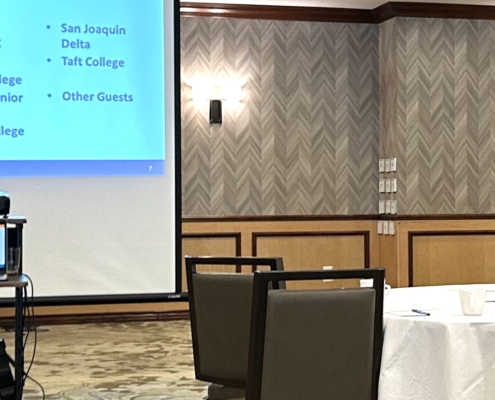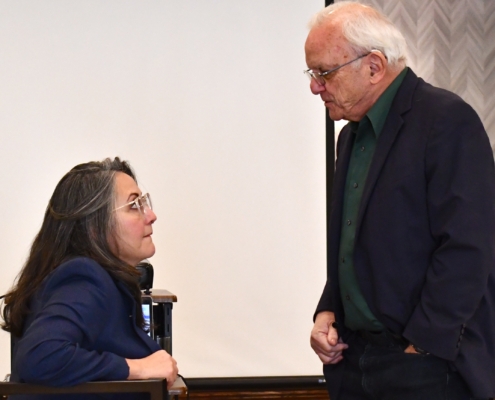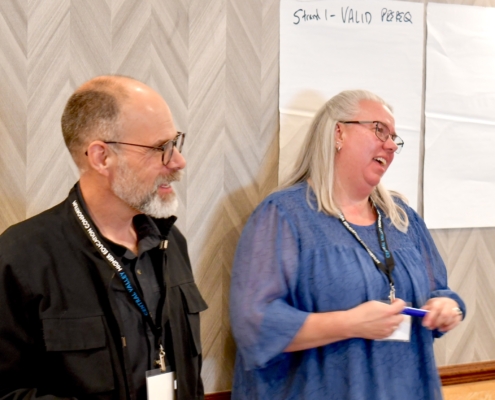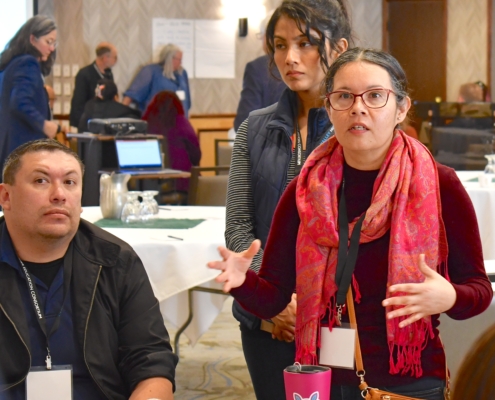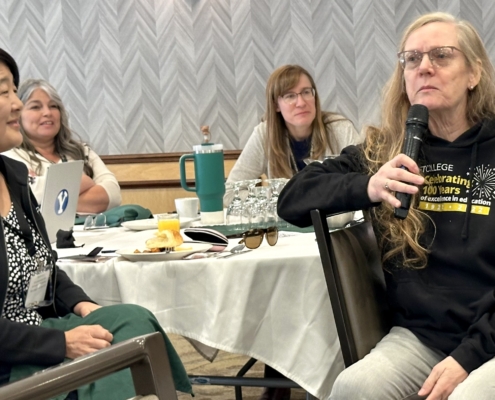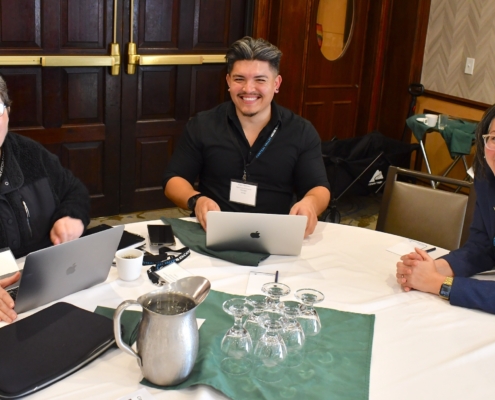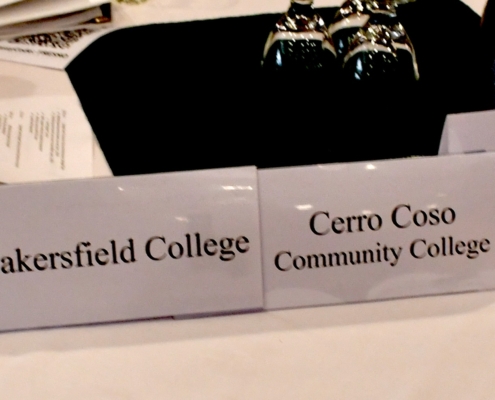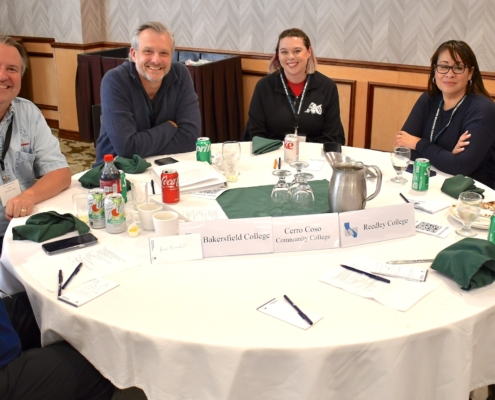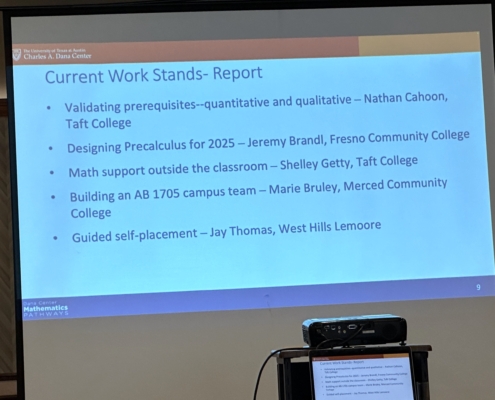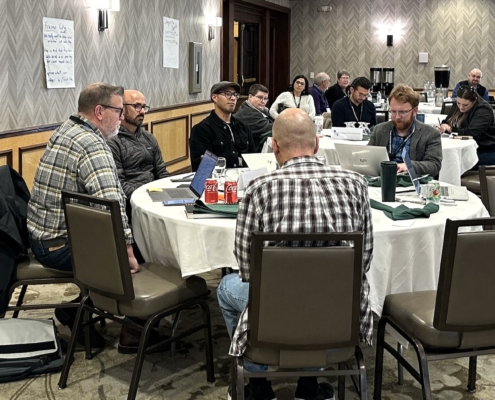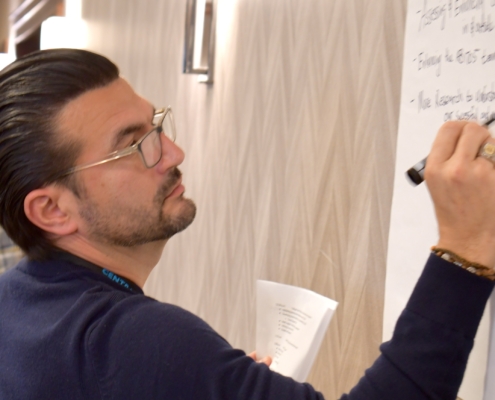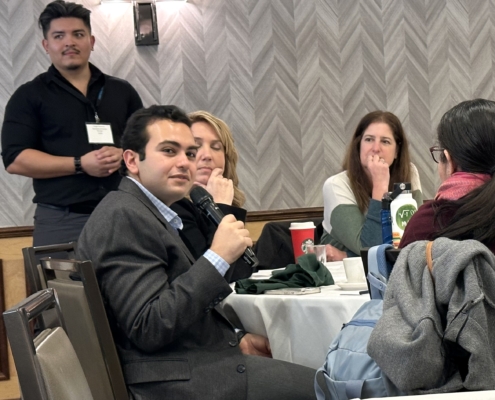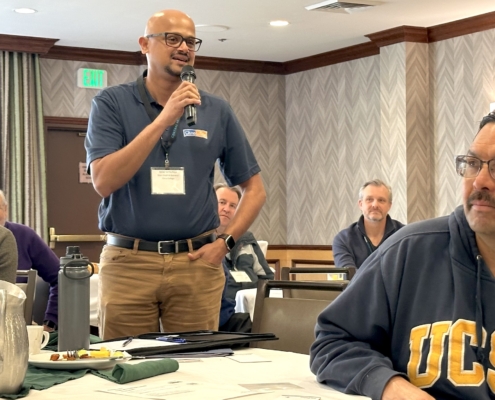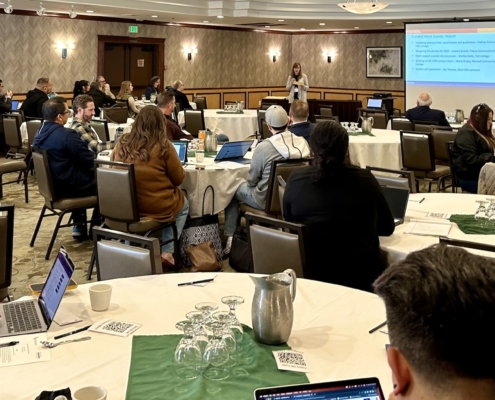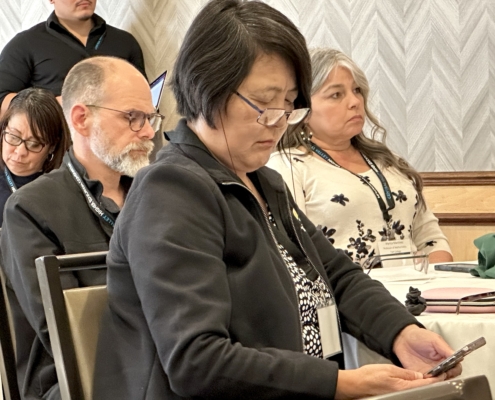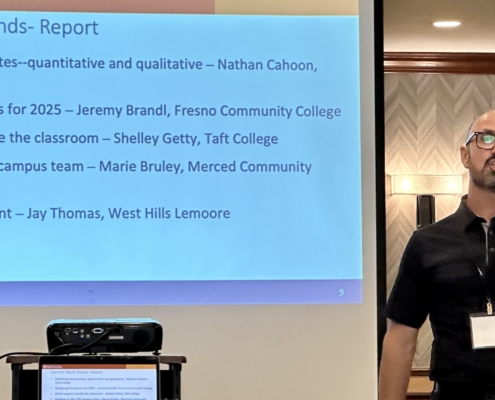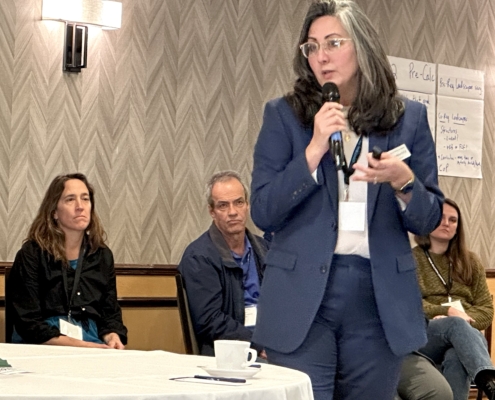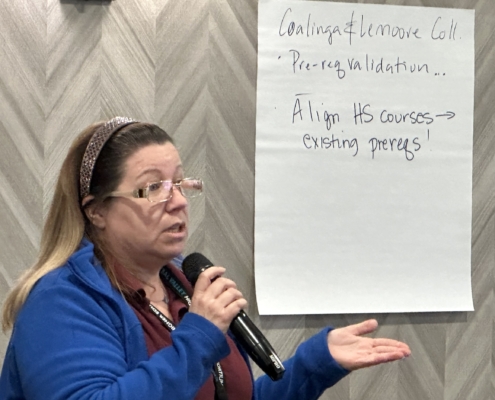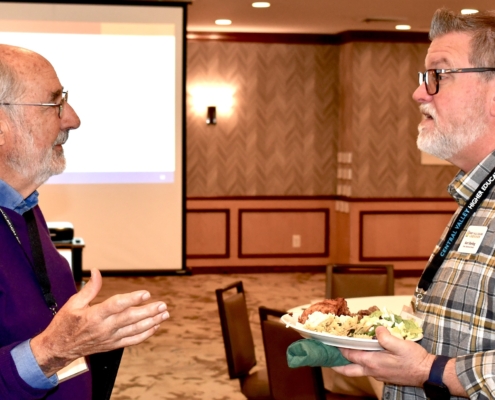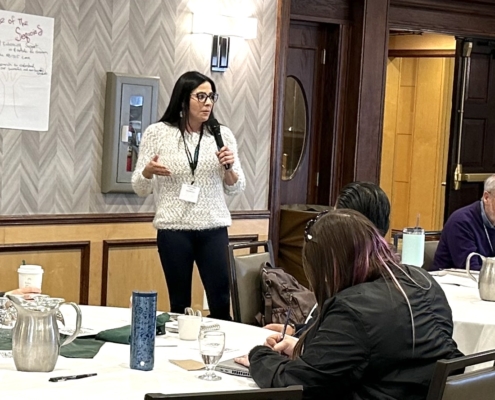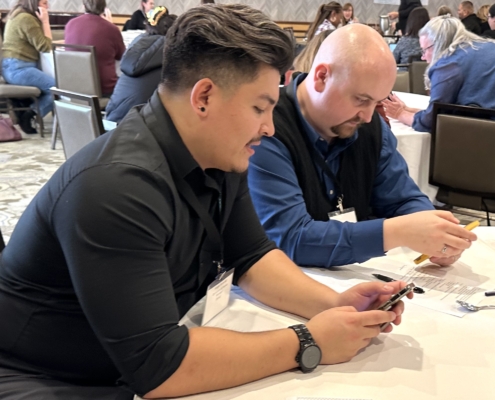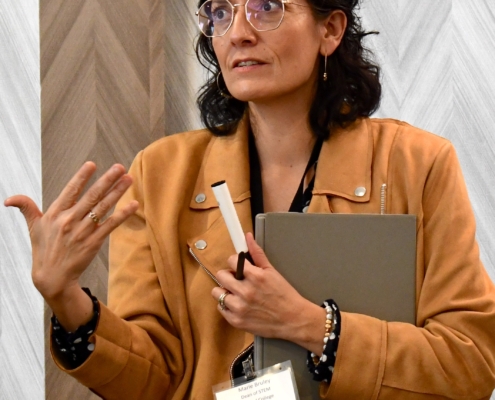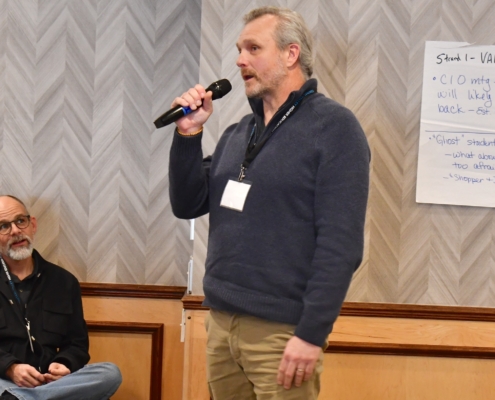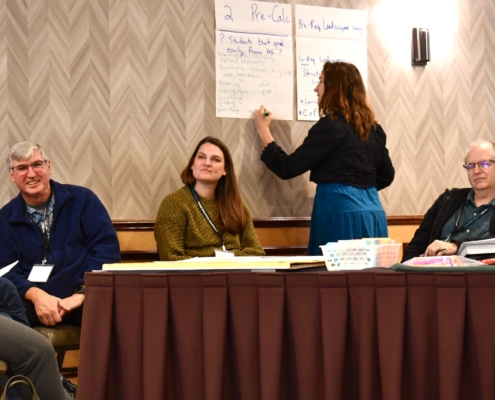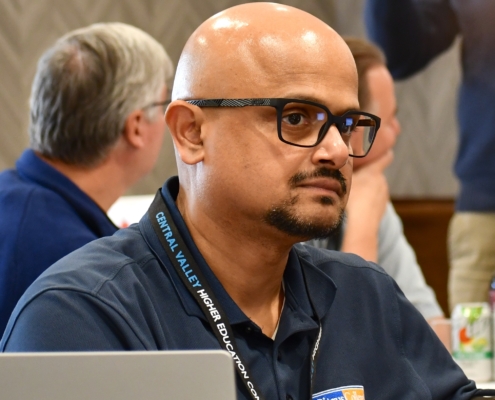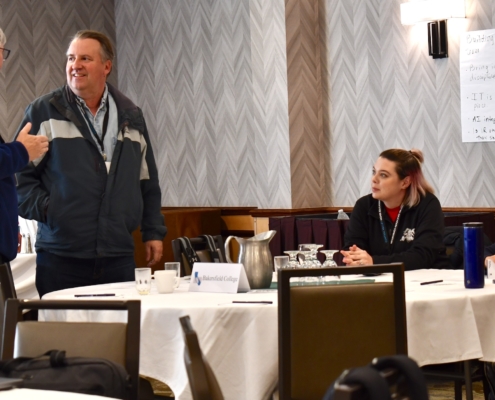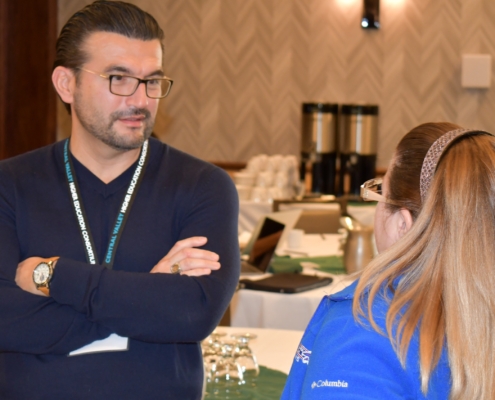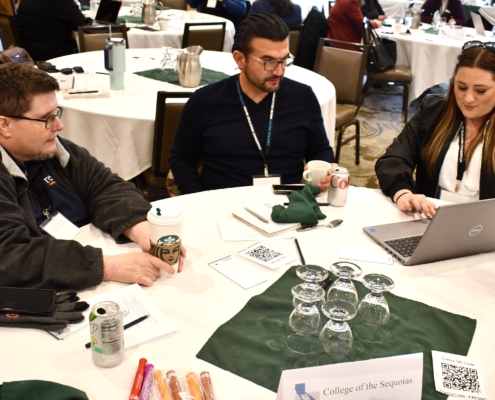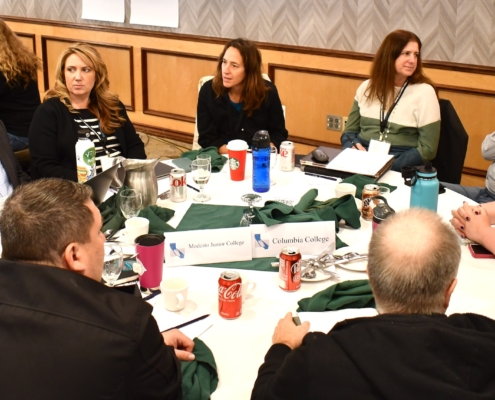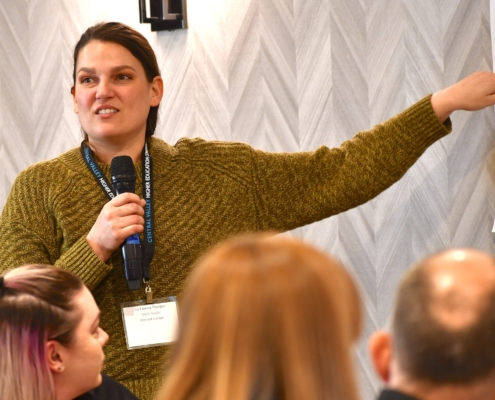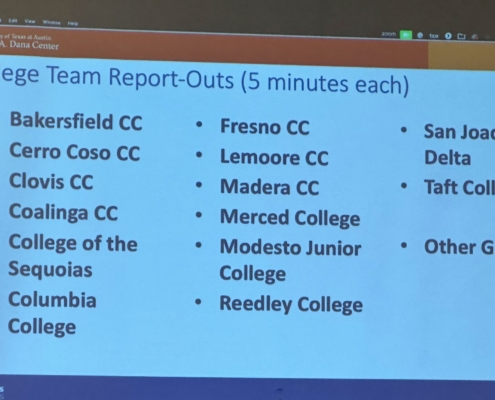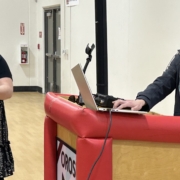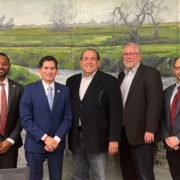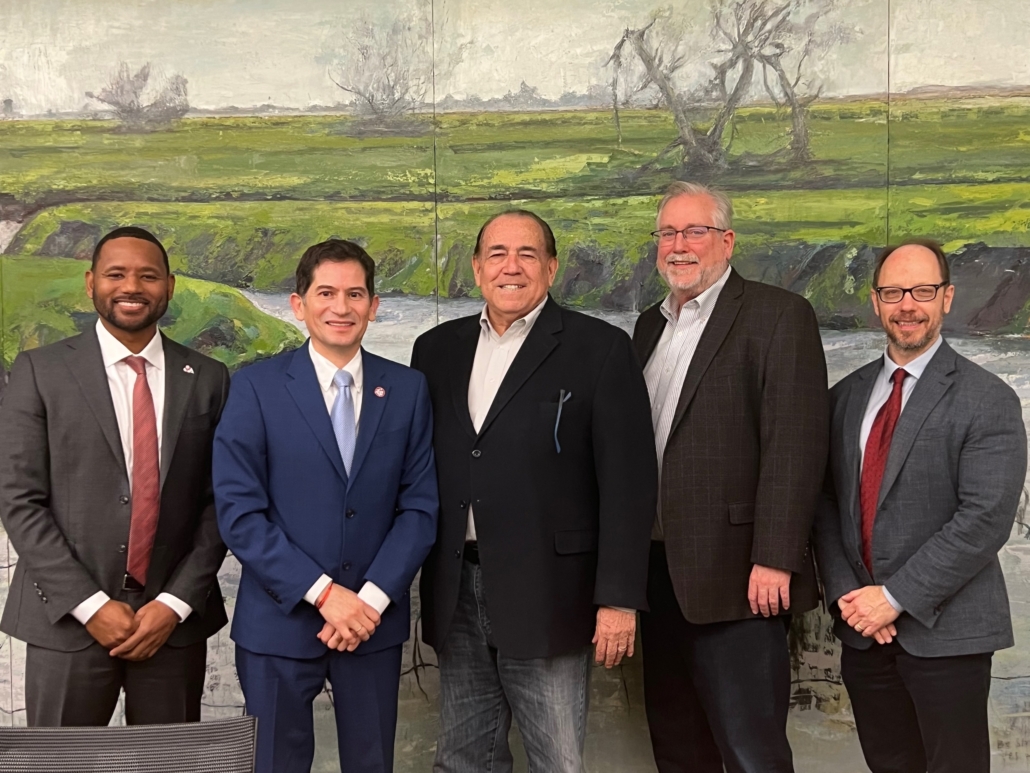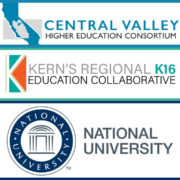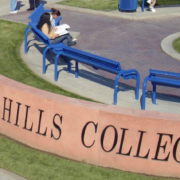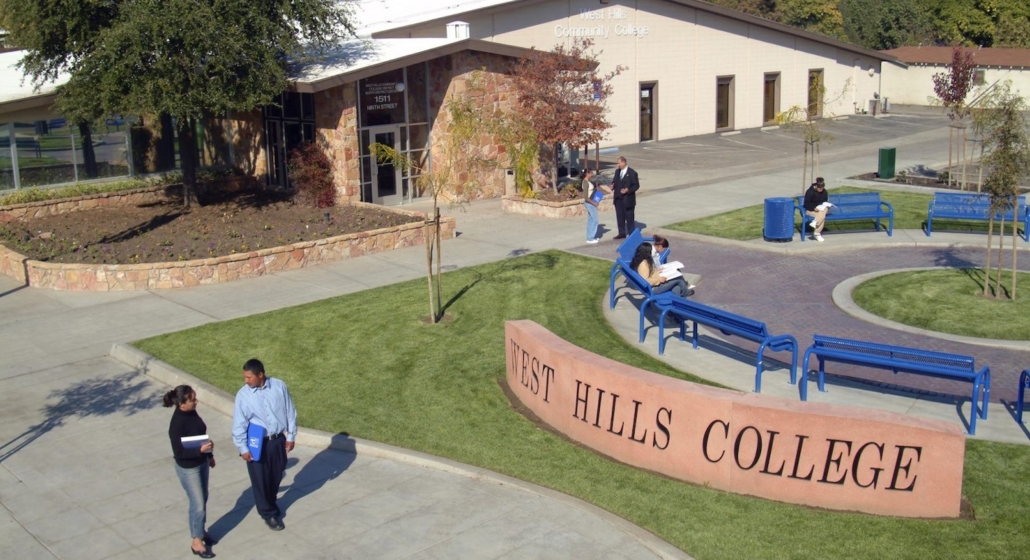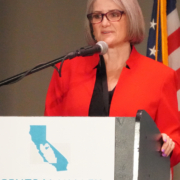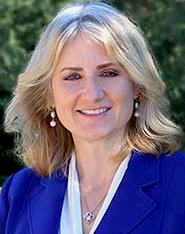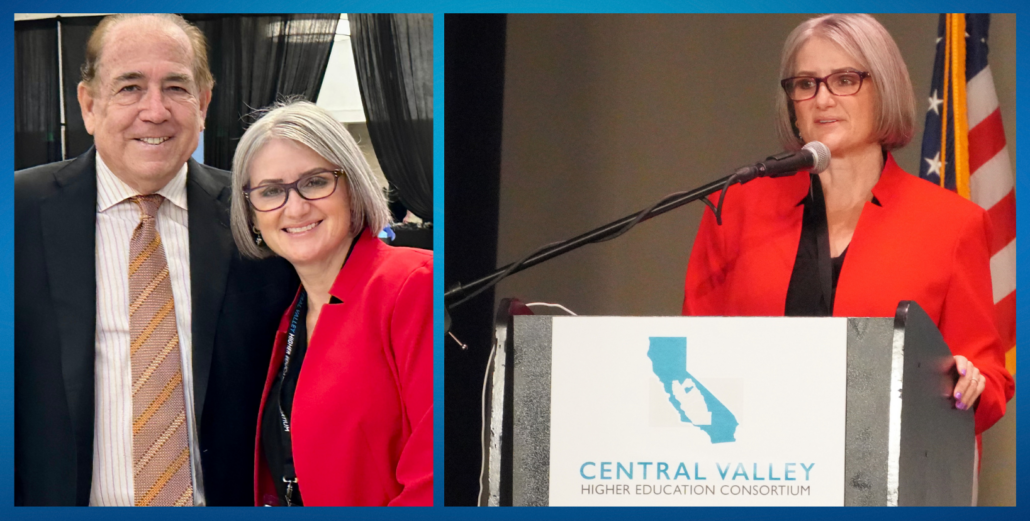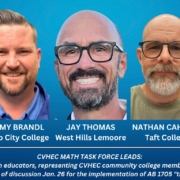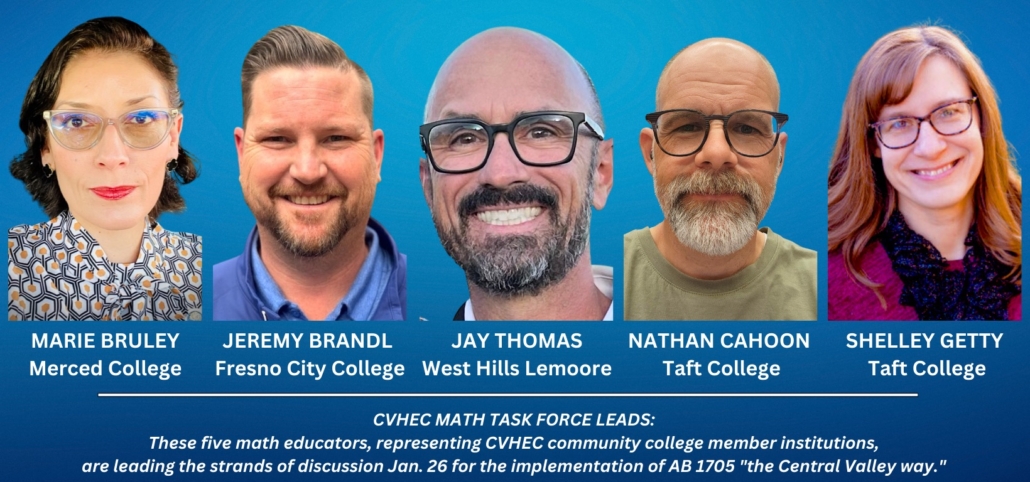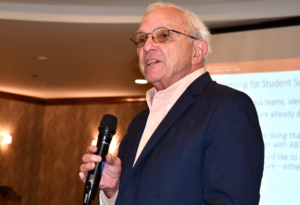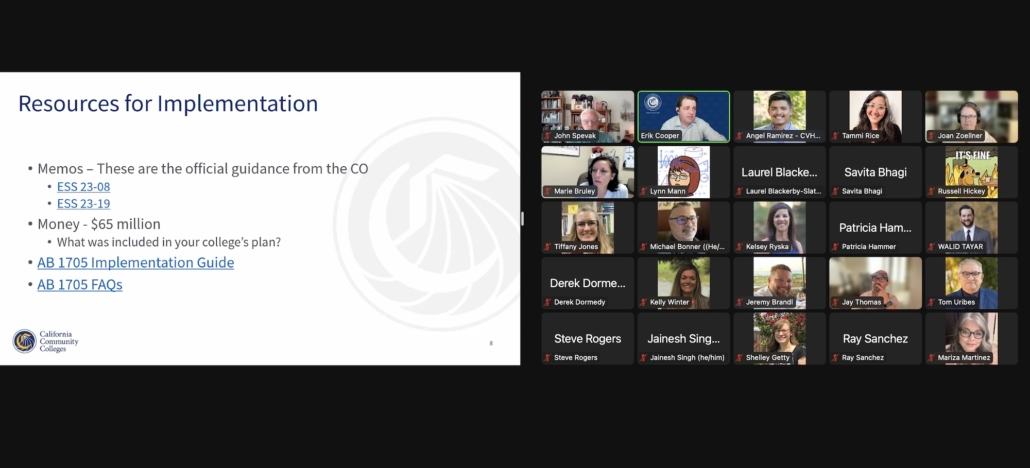MATH BRIDGE UPDATE- April 2024
The road to Orosi, California typifies the rich rural areas of Central California where CVHEC and College Bridge are reaching
out to provide Math Bridge services that help prepare high school students for college. (Tom Uribes photo)
Math Bridge campaign identifies nearly
1,000 students for college-level math courses
BY DR. NICOLE KORGIE
Vice President of Operations – College Bridge
The Central Valley Math Bridge project is off and running as 13 committed high school partners with College Bridge and the Central Valley Higher Education Consortium are completing a student recruitment campaign that has identified nearly 1,000 students ready to take on college math and nearly half of those indicating their interest to participate.
The impact Math Bridge is having on education in the region is seen in one general characteristic of these students: they were likely NOT to have taken an advanced math course, or even math at all, in their senior year.
Now, as more high school students graduate with solid/advanced math skills though Math Bridge, more students will find success in college and career, filling vital local workforce needs.
The participating high schools stretching across the Valley’s nine-county region from Taft to Stockton are partnering with six community college members of CVHEC to offer the math dual enrollment courses at their respective campuses beginning next fall (student breakdown in parenthesis. The community colleges and their participating feeder schools are::
DELTA COLLEGE: Stagg High School, Weber Academy;
MERCED COLLEGE: Atwater High, Buhach Colony High School, Golden Valley High School, Livingston High School, Mariposa High School;
REEDLEY COLLEGE: Dinuba High School, Orosi High School, Sanger High School, Sanger West High School;
TAFT COLLEGE: Taft High School;
WEST HILLS COLLEGE LEMOORE: Riverdale High School.
The campaign: no longer running from math!
The nearly 1,000 Central Valley students from these high schools identified as great prospects to participate in Math Bridge have solid academic GPA’s — between 2.3 – 3.4 — but have struggled in high school math.
Beginning at Taft High School in January, the prospective students were presented with information about Math Bridge and the benefits of participating such as allowing these students to complete a college level math course before they graduate from high school.
While you may think that many if not all students who fear or dislike math would run screaming if presented with the opportunity to take a college level math course, you may now re-think that: of the nearly 1,000 students identified, NEARLY HALF completed a form AFFIRMING their interest in participating in Math Bridge. They expressed a desire to take on the challenge of college level math that the Math Bridge project provides the high school including extensive support to help students pass the course.
For the upcoming academic year, all Math Bridge partner sites will offer a statistics course though their local community college. Math Bridge will be working with the college faculty and high school math teacher at each site to ensure that appropriate support services are provided to the students in the course.
We are currently following up with the 500 students who completed the interest form in the recruitment sessions to ensure that they meet with their school counselor to confirm that Math Bridge is the correct option for them for senior year and their post-secondary goals.
To date, 230 students have signed up. And we’re not done yet as Dinuba and Stagg have yet to begin their student recruitment process so even more students will be given this opportunity by the time we provide a final enrollment number in a future update.
Prepping participant high schools for Math Bridge
As this student recruitment campaign wraps up this spring, we now move into the support phase for the educators from the high school participants with a special event May 3 in Fresno to help prepare teachers for the Math Bridge project’s launch in the fall semester.
On that day, College Bridge will host our Math Bridge Instructional Planning Meeting where college and high school math instructors and their support teams (math coaches, chairs, supporting faculty) will collaborate with our project team around the who, how, when, where and what for the Math Bridge courses to be taught in Academic Year 2024-2025.
Activities for the day will include reviewing curriculum, assessments and commonalities between college courses and any necessary local differences. We will also review the requirements for instructors to earn the project stipend as well as calendaring all future planning and collaboration times per college service area.
It is understandable that some feel the slight mention of math is enough to squash any conversation but the groundbreaking role these Central Valley high schools and their community college partners are taking on with College Bridge and CVHEC is a new level of excitement for educators seeking to arm their students for a successful higher education experience.
BACKGROUND: College Bridge’s mission is to identify and eliminate barriers that prevent underrepresented students from progressing to and through college specifically focusing on Black, Latino, low-income and rural students. One of its two objectives is to expand strategic dual enrollment partnerships to serve low-income, rural and Latino students in California’s Central Valley. In December 2022, College Bridge was awarded a five-year $4 million US Department of Education grant for the Dual Enrollment Math Bridge Project so six CVHEC community colleges could provide college-level math classes that will improve and support college readiness for underprepared students in the colleges’ respective service areas. In April 2023, the project received a $1,075,340 award from the California Regional K-16 Education Collaboratives Grant Program through two Central Valley K-16 programs – the Fresno-Madera K-16 Collaborative and the Tulare-Kings College & Career Collaborative. Then in December 2023, a $2,196,928 federal grant was awarded for expansion of the College Transition Bridge project that, among other features, will advance collaboration with CVHEC’s Central Valley Transfer Project and its college course-planning software, Program Pathway Mapper, as well as with consortium member colleges.


